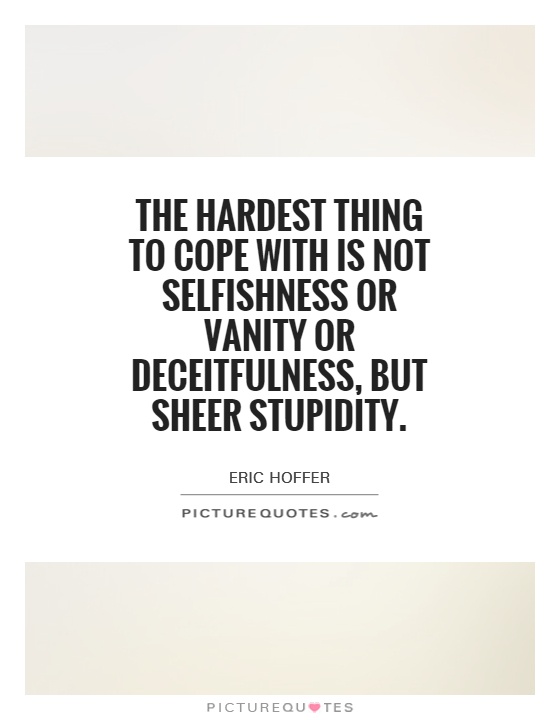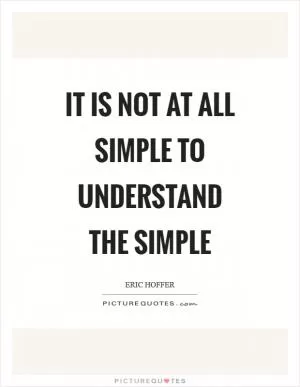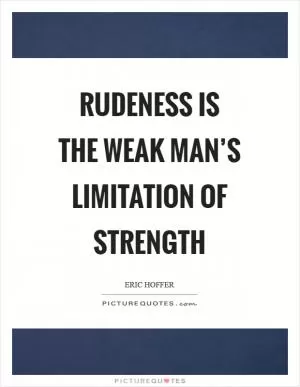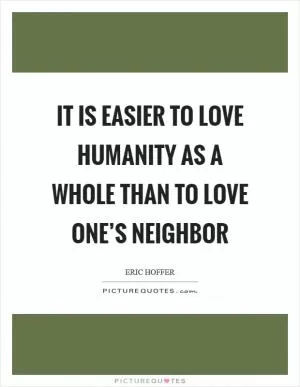The hardest thing to cope with is not selfishness or vanity or deceitfulness, but sheer stupidity

The hardest thing to cope with is not selfishness or vanity or deceitfulness, but sheer stupidity
Eric Hoffer, a renowned American philosopher and author, once said, "The hardest thing to cope with is not selfishness or vanity or deceitfulness, but sheer stupidity." This statement holds a profound truth that resonates with many individuals who have encountered the challenges of dealing with ignorance and foolishness in their personal or professional lives.In the context of Eric Hoffer's philosophy, stupidity refers to a lack of critical thinking, reasoning, and intellectual curiosity. It is not merely a lack of knowledge or education, but a willful ignorance that hinders growth and progress. Dealing with sheer stupidity can be frustrating and exhausting, as it often leads to misunderstandings, conflicts, and inefficiencies in communication and decision-making.
One of the most challenging aspects of coping with stupidity is the inability to reason with irrational and illogical behavior. People who exhibit sheer stupidity may resist logic and evidence, cling to their misguided beliefs, and refuse to consider alternative perspectives. This closed-mindedness can be exasperating for those who value intellectual honesty and open dialogue.
Moreover, sheer stupidity can have far-reaching consequences in various aspects of life, such as relationships, work, and society as a whole. In personal relationships, dealing with a partner, friend, or family member who displays ignorance and foolishness can strain the bond and lead to misunderstandings and conflicts. In the workplace, having to work with colleagues or superiors who exhibit sheer stupidity can impede productivity, hinder collaboration, and create a toxic work environment.
In society, the prevalence of ignorance and foolishness can have detrimental effects on public discourse, policymaking, and social progress. When individuals prioritize their own biases and prejudices over facts and reason, it can lead to polarization, misinformation, and division within communities.












 Friendship Quotes
Friendship Quotes Love Quotes
Love Quotes Life Quotes
Life Quotes Funny Quotes
Funny Quotes Motivational Quotes
Motivational Quotes Inspirational Quotes
Inspirational Quotes